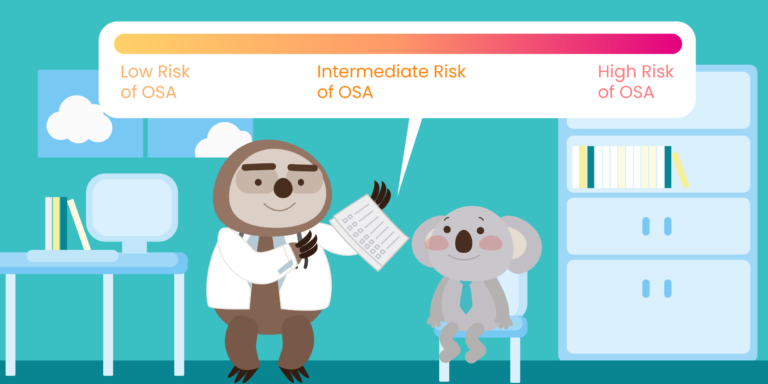Obstructive Sleep Apnea (OSA) is an important aspect in treating and managing cardiovascular diseases. The two can often be closely linked, heart disease being one of the secondary health issues that can arise when OSA is left untreated. The decrease of oxygen during apneic events can lead to atherosclerosis, the main risk factor for Cardiovascular Diseases (1).
Recent studies show that OSA may be implicated in strokes and appears to be associated with coronary heart disease, heart failure, and cardiac arrhythmias. Pulmonary hypertension may also be associated with OSA, especially in patients with preexisting pulmonary disease (2). Though these may sound scary, it’s important to remember that the earlier OSA is diagnosed and treated, the less likely any secondary health issues will develop.
Below, we’ll cover some of the most prevalent health issues commonly linked to OSA: High blood pressure and obesity.
High Blood Pressure:
Most people have heard of some negative consequences of high blood pressure and it is commonly known to be caused by a stressful lifestyle. But just because someone doesn’t feel stressed doesn’t mean their body isn’t strained. For example, waking up several times during the night, combined with general poor sleep quality, causes stress on the body. OSA can make high blood pressure symptoms worse as apneic events prevent the already oxygen-deprived body from absorbing oxygen. Additionally, these events can cause a sudden decrease in blood oxygen, which adds a heavy stress on the cardiovascular system.
Research has shown that high blood pressure is linked to a loss of cognitive function — specifically among adults aged 44-66. This means that it’s likely high blood pressure is linked to dementia. High blood pressure is also a leading cause of strokes, a condition that is increasingly common among younger people.
Most people suffering from high blood pressure are unaware of it and therefore are not being treated to manage it. Learn more about HBP here.
High blood pressure, though the cause of many life-threatening health issues, can be managed through proper diagnosis and treatment. People receiving treatment for OSA often see their blood pressure improve. Here are more tips on managing and preventing high blood pressure.
Obesity:
Research has shown that there is a linear correlation between OSA and obesity. Like OSA, obesity is linked to insulin resistance, hypertension, and inflammation (3). Excess weight causes the deposit of pharyngeal fat (fat in a person’s neck). This can literally obstruct the upper airway during sleep, making it difficult to breathe properly.
According to various studies, the risk of being affected by OSA increases with a person’s BMI (4). Though men face a significantly higher risk than women (5).
Adopting a healthier lifestyle and diet is key to help treat and prevent OSA. Find out more here.
Everything mentioned above may seem daunting but they are preventable and treatable. OSA and its symptoms can be efficiently managed with proper guidance. Talk to your doctor about the changes most likely to help you feel better and reduce future health issues.







